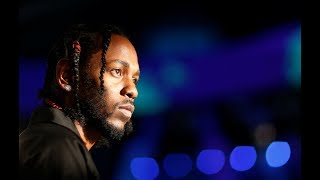JUDY WOODRUFF: As we reported earlier, recipients of the Pulitzer Prize were announced today, and they included winners in literature, music, and the arts. Jeffrey Brown is with us from Boston to run through some of them.
JUDY WOODRUFF: Hi, Jeff.
JEFFREY BROWN: Hi, Judy.
JUDY WOODRUFF: So, winner in music, a big surprise, Kendrick Lamar.

JEFFREY BROWN: Yes, that is a really big surprise, Judy. As you know, the Pulitzer Prize in music almost always has gone to someone in the world of contemporary classical music. Twice, it has gone to some jazz greats, but that didn't even happen until 1997. The first was Wynton Marsalis. And then in 2007 was the great Ornette Coleman. But here we have Kendrick Lamar from the world of popular music, for one, and, even more, rap music, which has never happened before. So, it's quite interesting. There's no question about his bona fides as one of the great wordsmiths and musicians of popular music today, but it is very interesting to think about the values of music and what's being honored by something like the Pulitzer. It's quite new. Of course, it happened -- one analogy we could think is Bob Dylan winning the Nobel Prize a couple of years ago. Quite controversial. He was getting the prize for literature as a poet, but here he was a musician and folk singer. Kendrick Lamar is certainly a musician, certainly doing music, but this is quite new for the Pulitzers.
JUDY WOODRUFF: Well, I confess I'm a fan of Kendrick Lamar, so good for him. Now, Jeff, there were some other interesting winners, writers, other categories of the Pulitzer
Prize. Tell us about a couple of those.
JEFFREY BROWN: Now, I can tell you about a few of them. The winner in poetry was Frank Bidart. Frank is a very renowned elder statesman at this point. And he won for his -- it's called "Half-Light," and it's collected poems. And so this is clearly honoring him for many decades of wonderful work. He's best known for his dramatic monologues, longer poems in which he sort of uses a dramatic character, sometimes a real character, and puts it into poetic form. The winner in nonfiction, some of our "NewsHour" viewers will remember because I interviewed him, James Forman Jr. It's for long "Locking Up Our Own." It's about crime and punishment in America, and very timely look at many kinds of issues, particularly around race, involving the criminal justice system. And in the world of biography, this one interested me. The book is "Prairie Fires." The winner is Caroline Fraser. It's a biography of Laura Ingalls Wilder. And this is the little home on the prairie book. So, a lot of people have read these books. I have been reading it myself. It's framing Laura Ingalls Wilder, but in a much larger picture about the settlement of the American West, of course, the prairie and the pioneers on the prairie.
JUDY WOODRUFF: Thank you very much. A reminder that these Pulitzers extend beyond journalism to so many areas of culture and our life. Jeffrey Brown, thank you.
JEFFREY BROWN: Thanks, Judy.












